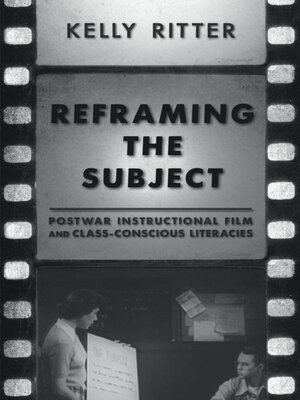Reframing the Subject
ebook ∣ Postwar Instructional Film and Class-Conscious Literacies · Composition, Literacy, and Culture
By Kelly Ritter

Sign up to save your library
With an OverDrive account, you can save your favorite libraries for at-a-glance information about availability. Find out more about OverDrive accounts.
Find this title in Libby, the library reading app by OverDrive.



Search for a digital library with this title
Title found at these libraries:
| Library Name | Distance |
|---|---|
| Loading... |
"Mental hygiene" films developed for classroom use touted vigilance, correct behavior, morality, and model citizenship. They also became powerful tools for teaching literacy skills and literacy-based behaviors to young people following the Second World War.<br><br>In this study, Kelly Ritter offers an extensive theoretical analysis of the alliance of the value systems inherent in mental hygiene films (class-based ideals, democracy, patriotism) with writing education—an alliance that continues today by way of the mass digital technologies used in teaching online. She further details the larger material and cultural forces at work in the production of these films behind the scenes and their effects on education trends.<br><br>Through her examination of literacy theory, instructional films, policy documents, and textbooks of the late 1940s to mid-1950s, Ritter demonstrates a reliance on pedagogies that emphasize institutional ideologies and correctness over epistemic complexity and de-emphasize the role of the student in his or her own learning process. To Ritter, these practices are sustained in today's pedagogies and media that create a false promise of social uplift through formalized education, instead often resulting in negative material consequences.







